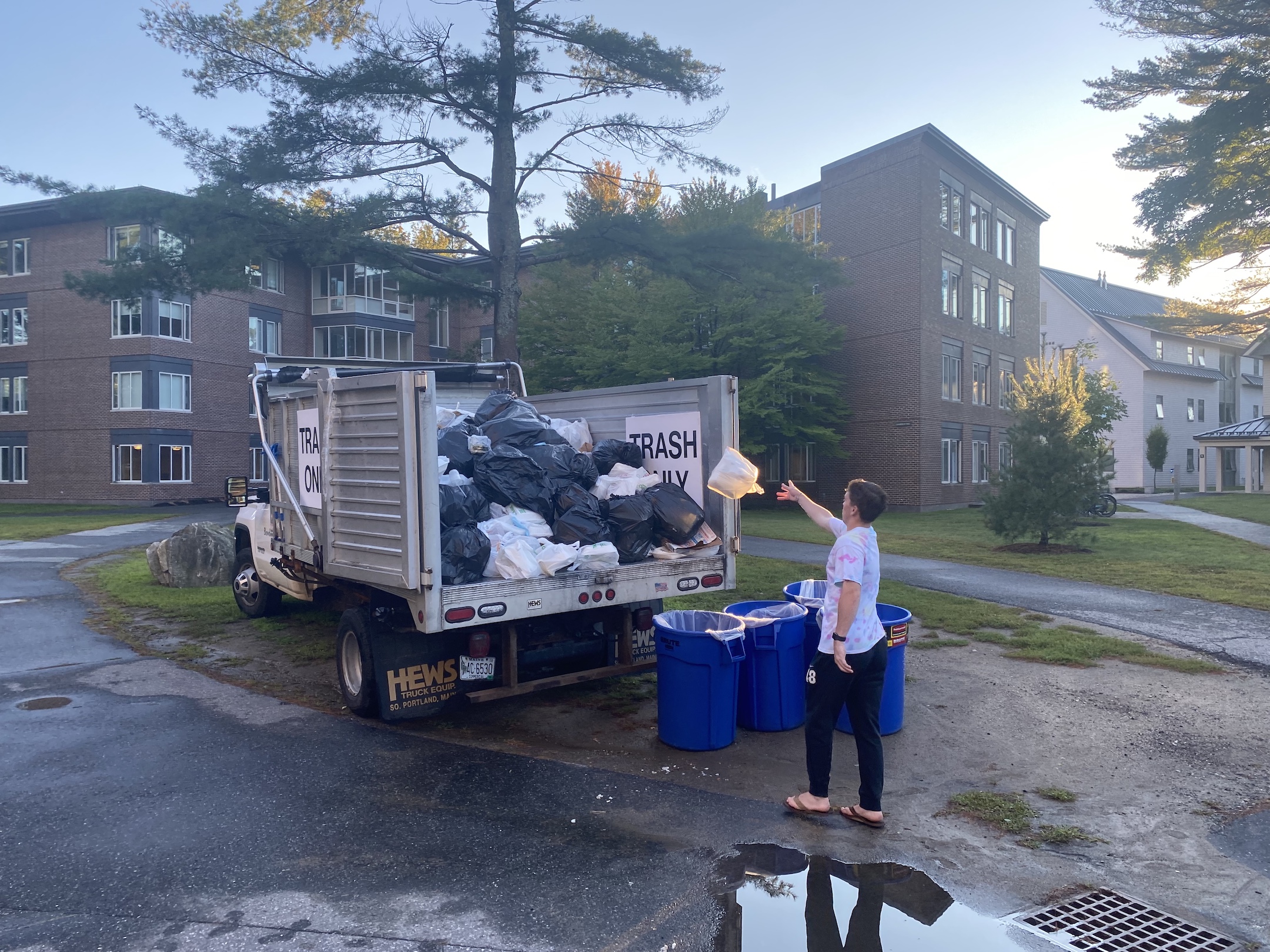Trash quickly piling up after move to takeout dining
September 10, 2021
 Cole van Miltenburg
Cole van MiltenburgThe campus-wide shift to status Yellow last Thursday included the dining halls’ abrupt transition to exclusively takeaway meals. However, Bowdoin Dining Services and the Bowdoin Sustainability Office were prepared for the change and have built upon their work from last year to improve food packaging options and further develop a means for efficient and sustainable waste disposal on campus.
The near-immediate transition of dining services from in-person to takeout meant that staff members had to quickly obtain a myriad of food packaging options. Interim Director of Dining Ken Cardone explained that the College’s strong relationship with product vendors was key in facilitating this change.
“We’ve been fortunate in the respect that we have a good relationship [with vendors] and we don’t order at the last minute,” Cardone said. “Moving into the winter months, we have a warehouse available where we can store product[s].”
This warehouse, located on the Industrial Parkway about a mile from campus, holds a stockpile of bags, containers and disposable silverware that can support the College during supply shortages. However, demand for these products remains high across the country, and winter weather can cause delivery issues, leading to further delays. Thus, Cardone is constantly looking for new materials to satisfy the College’s demand, weighing current availability with the College’s purchasing standards.
“A lot of it is based on availability,” Cardone said. “We have the [specifications] written, we have a good relationship with our vendors, but it’s difficult to find the volume that we need because if you look at COVID, everybody’s doing the same thing [and] keeping that stockpile.”
A key component of these purchasing standards is sustainability—all of the takeout packaging and silverware currently used by Bowdoin Dining is either compostable or recyclable. Associate Director of Sustainability Keisha Payson has worked with dining over the past year to curate sustainable packaging options.
One of Payson’s major aims is to increase the presence of compost bins on campus. While compost bins were widely accessible in the spring, Payson did not anticipate the sudden re-emergence of takeout dining this fall, and she is currently working to secure a larger supply of compost bins on campus to help curb the issue of food waste.
Amid this transition, she also conveyed a need for more general waste disposal locations and a greater sense of responsibility among students to properly deal with the volume of trash that takeout dining generates.
“It’s a bummer from my perspective,” Payson said. “Because people are putting trash on top of the trash cans as opposed to walking a hundred yards to put it in a dumpster.”
Moving forward, Payson suggests that students prioritize composting food waste over the compostable containers which can take up greater space in disposal bins. Payson also noted the importance of ensuring that recyclable containers are free of food scraps so as not to create contamination within the waste management system.
“For a lot of students who don’t have the time or interest, you’d rather they just throw it in the trash than take a guess,” Payson said.
As status Yellow remains for the foreseeable future, Payson emphasized that there are many simple actions students can take to reduce waste, such as providing their own silverware and bags when taking food from the dining hall. Cardone echoed these sentiments, remaining hopeful that less waste will be generated this semester than last.
“It’s just a matter of reminding everybody to be vigilant and sort your trash,” Cardone said. “It takes a few minutes, but it works.”

Comments
Before submitting a comment, please review our comment policy. Some key points from the policy: